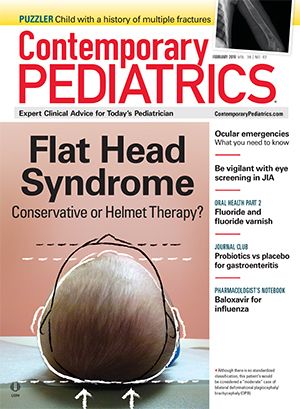Not sleeping through the night by age 12 months? Not to worry!
Many 6- and 12-month-old infants do not yet sleep through the night, but Canadian researchers found no significant associations between this situation and infants’ mental and psychomotor development or their mothers’ mood.
Michael G Burke, MD

Many 6- and 12-month-old infants do not yet sleep through the night, but Canadian researchers found no significant associations between this situation and infants’ mental and psychomotor development or their mothers’ mood.
Using a definition of either 6 or 8 hours of uninterrupted sleep as “sleeping through the night,” investigators surveyed more than 300 women when their infants were aged 6 and 12 months about their children’s sleeping habits during the previous 2 weeks. At 6 months, using the 6-hour criterion, 37.6% of mothers reported that their child did not sleep through the night as did 57% under the 8-hour criterion. At age 12 months, the proportion of children reported not to sleep through the night under the 6- and 8-hour criteria had dropped to 27.9% and 43.4%, respectively.
Investigators used standard tests to evaluate the infant participants’ development at ages 6, 12, and 36 months and their mothers’ mood during the third trimester of pregnancy, and at 6, 12, and 36 months postnatally. Correlating these test results with the collected sleep data, investigators found that whether or not infants slept through the night-using either criterion-did not have any significant effect on their mental or psychomotor development or their mothers’ mood (Pennestri MH, et al. Pediatrics. 2018;142[6]:e20174330).
Thoughts from Dr Burke
Parents of babies who do not sleep for a long stretch at night may find it reassuring that they are not alone, and that, in fact, a minority of 6-month-olds sleep for 8 hours at a time. Babies who didn’t sleep through the night were more likely to continue breastfeeding and, surprising to me, their mothers were no more likely to have depressed moods than mothers of infants who slept longer. Maybe we need to deemphasize this sleep milestone.

Newsletter
Access practical, evidence-based guidance to support better care for our youngest patients. Join our email list for the latest clinical updates.